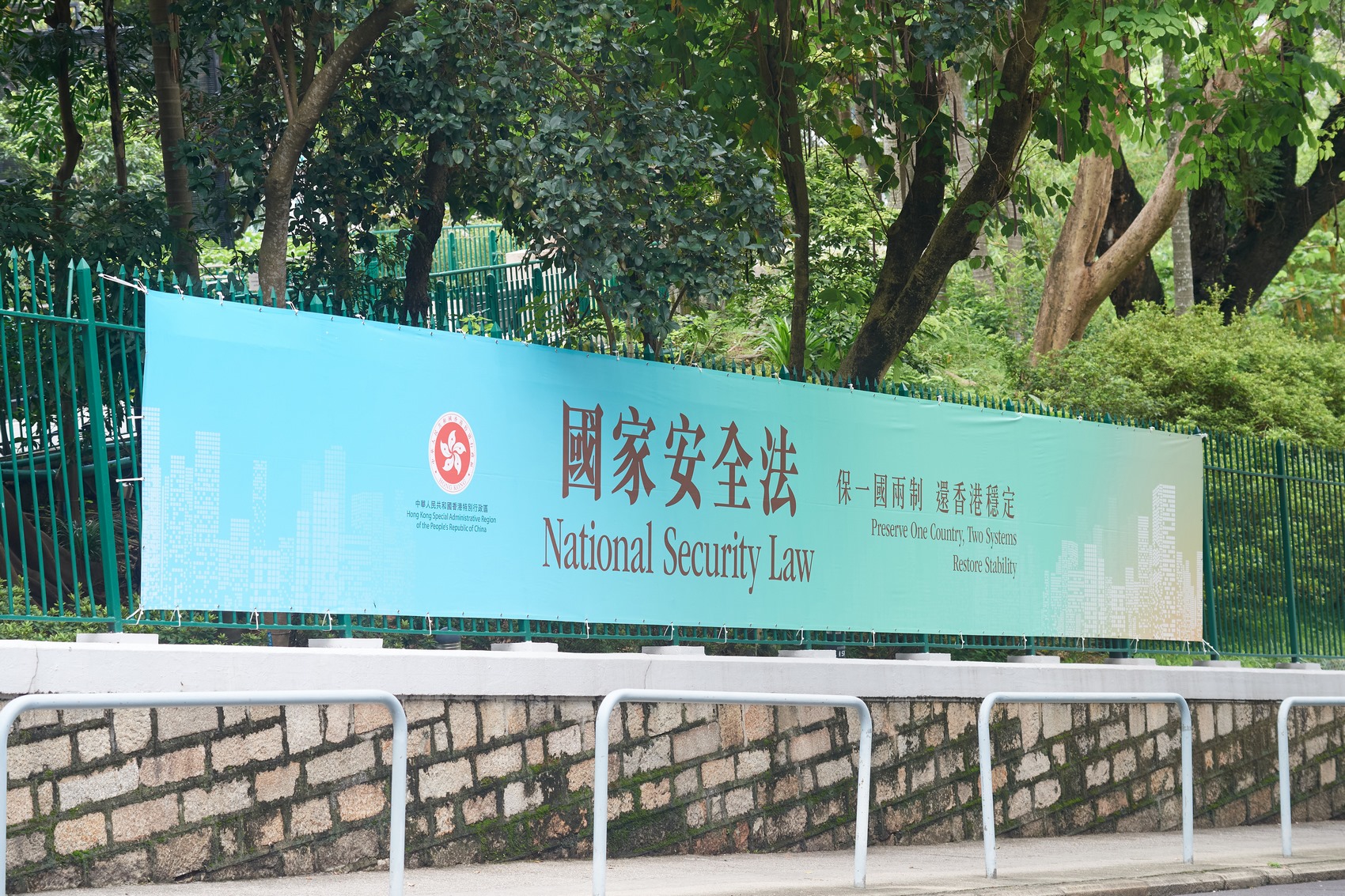The number of people arrested by the Hong Kong police in connection with national security crimes has exceeded 200, as the city saw a significant increase in deception cases during the first half of 2022.

Hong Kong police arrested a total of 201 people for allegedly committing acts endangering national security in the first two years since the Beijing-imposed national security law came into force on June 30, 2020, according to the latest crime statistics released by the Force on Monday. More than half of the arrestees were prosecuted.
The national security arrests figures, recorded up to the end of June this year, did not specify the alleged offences. The sweeping security legislation targets secession, subversion, collusion with foreign forces and terrorist acts. But previous figures from the police also included arrests made under the colonial-era sedition law, which imposes a more lenient maximum penalty of two years compared to life imprisonment under the Beijing-enacted legislation.
Citing “local extremist” activities becoming more “underground and discreet,” police revamped its “anti-violence hotline” into the “Counter-terrorism Reporting Hotline,” which began to accept tips from the public regarding “suspicious persons, objects or activities” last month. As of mid-July, the Force received more than 3,800 messages through the hotline and said they were following up on reports that involved alleged terrorism or violence.
Deception
Police said on Monday that Hong Kong recorded 31,434 crimes during the first half of 2022, showing a 1.8 per cent rise compared to the same period of 2021. Cases of violent crimes dropped by 12.2 per cent and stand at 4,084.

The Force attributed the rise in overall crime to a jump in deception cases, which increased significantly from 8,699 to 12,326, showing a 41.7 per cent rise. More than 70 per cent of the reports were linked to the internet, with 3,954 cases of online shopping deception. The public also reported 1,706 cases of employment fraud, 1,271 cases of investment fraud and 786 cases of telephone deception, police said.
“The huge amount of losses involved in ‘investment fraud’ and ‘telephone deception’ cases, which was over HK$700 million and HK$400 million respectively, remained a cause for concern,” police said.
Most investment fraud scammers used “romance scam” schemes, as well as fake investment applications, police said. Those who carried out telephone deception, on the other hand, would pretend to be officials or ask their victims to guess who they were.
Police cracked down on various deception syndicates over the past six months and arrested more than 250 people, who were linked to over 1,000 cases of fraud with a total financial loss of around HK$500 million.
Other crimes
Police said on Monday that Hong Kong registered 16 cases of homicide in the first half of 2022, six cases more compared to the same period last year. Eleven of them involved domestic or family violence, the force said.

The city also saw an increase in blackmail, with a total of 921 cases recorded between January and June this year. The figure showed a 30.3 per cent upsurge compared to the first half of 2021, with more than 700 cases involving victims of “naked chat blackmail.”
One fourth of the blackmail victims were students, police said, while more than 60 per cent of them were aged 30 or below.
Other major crimes such as child abuse and serious drug offence saw “substantial decreases,” police said, with new record low figures in cases of robbery, burglary, rape, wounding and serious assault, snatching, pickpocketing and theft from vehicle cases.
Support HKFP | Policies & Ethics | Error/typo? | Contact Us | Newsletter | Transparency & Annual Report | Apps
Help safeguard press freedom & keep HKFP free for all readers by supporting our team
























